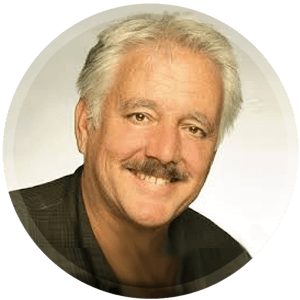I’ve yet to meet Steve Chandler, who has been gracious enough to send me a number of his books over the past several months. I’m eventually making my way through them; he always seems to capture something at its core just when you’re not expecting it. I’ve written about him before and continue to find him engaging.

In Ten Commitments to Your Success, he talks about Spirit:
“Spirit is like the wind. Because the wind can be a ruthless tornado, or it can be light as a breeze. You know it’s there. You just can’t see it. You know it by the effect it has. You can feel it.”
He also captures an interesting analogy about happiness worth sharing.
Steve references Deepak Chopra who said in Return of the Rishi, that the only truly happy people he knows in life are meditators. I’m not sure that I buy that, but I do agree that a person’s happiest state is often found when they are in a quiet state, an in-the-moment and present state. When their mind is calm. This applies to me and numerous others in my life.
But what he says about meditation is valid: “in meditation, we leave the personality behind for brief downward strokes, when only the mantra is on our mind and we are sinking into the “unified field.” Into the “unmanifest.” We become peaceful when we are not living in our personalities anymore. Our own personalities are a creative fabrication designed to impress other fabrications.”
What is great about where he goes from here is that he dishes us an acting analogy. As someone who is not an actor, but who loves and ‘gets’ acting, dancing, movement, music and the whole on-the-stage thing, I really resonated with his point. It goes like this:
In most cases, actors keep acting until they die. Look at Jack Lemmon, Paul Newman, Robert Redford, Jessica Tandy (85 when she did Nobody’s Fool), Maggie Smith, etc. Why? The fabrication of their art form – “they’re not pretending they’re not pretending. They are just pretending in the purest form.” So suggests Steve – “why retire from something that liberating?”
He talks about the joy of liberation for all of us, “liberation from the fabrication. From the fiction that is the personality. This is what we are liberated from.”
When we play another character, we feel as if we can fly. He notes (and I agree with this), that it is less about going into a fantasy world and more about the fact that when we ‘act,’ we can use fiction to liberate ourselves into another fiction. Make sense? I get it and love the analogy. Thanks for the refresh Steve.